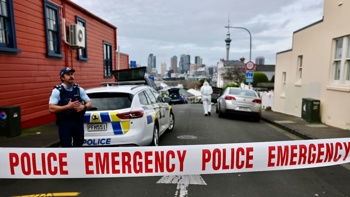"The technical team will be actively managing and monitoring the demand during the first few days to ensure the seamless access to revaluation information."
Valuations are expected to go live at around 9am, with most, if not all houses, expected to see a jump in their new valuations.
The information will be available on the Auckland Council website and homeowners who have subscribed should receive an email from council with their individual property valuations.
The individual valuations will also be available on qv.co.nz and on the Herald website today.
Last week Auckland Council revealed the total value of all residential properties across the region jumped by 45 percent taking the average house value in the Super City to $1.076m.
It also provided the percentage change in average value across the local board areas and suburbs.
Today, it was expected to reveal how these translated into dollar figures, alongside the new council valuations of each of the 548,000 properties in the city.
The broad trends across the local board and suburb areas indicated most properties will as a result of the valuations see a rise in their rateable value (RV) since in 2014.
In terms of local board areas, Waiheke Island, Papakura and Papatoetoe-Otara all grew in average value by more than 60 percent; up 64 percent, 61 percent and 62 percent respectively.
Growth was more pronounced when zooming into the suburbs. Two rose in value by more than 100 percent, Paerata-Runciman and Wainui-Waitoki, which grew by 102 percent.
Sixty-eight suburbs rose in value by 50 percent or more, with two rising in value by more than 80 percent - Drury up 81 percent and Westgate up 86 percent.
Colliers national director research and consulting, Alan McMahon, said the trends were unsurprising.
"The average house price increased by 45 percent, it's logical that the weight of that value uplift is concentrated where values were lower.
"Wages haven't matched property growth, so people are going to look in less expensive areas and more demand in those areas will mean a high rise in value."
He cautioned against people seeing the new valuations as a price tag, as valuations typically gave a snapshot of the time at which they were based.
For the valuations out today, this was July 1, 2017.
"We should be very cautious about suddenly thinking we are wealthier because rating valuations are going up," said McMahon.
"It [RV] doesn't mean much, it doesn't mean your house is worth 50 percent more than what it was worth last week, it's just a snapshot estimate."
McMahon said to get a true indication of your property's worth it was best to get an registered valuation undertaken.
Council valuations are released triennially, after a region-wide revaluation of all commercial, industrial and rural properties that every council in New Zealand is legally required to carry out.
In Auckland the rateable value is the value of the property set by council, for the purpose of determining the proportion of rates each property owner has to pay.
Because it is based on the capital value (CV), the RV is the same as the CV.










